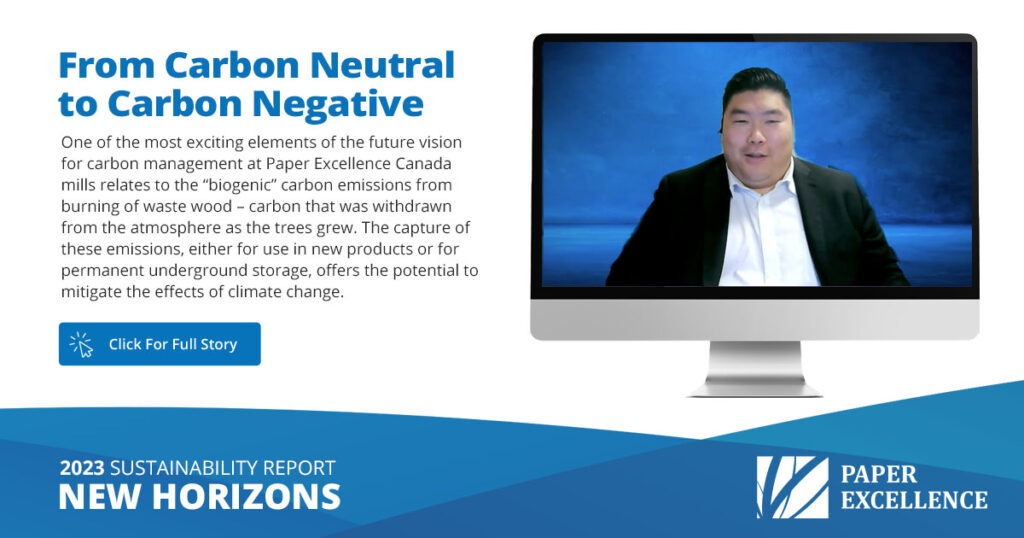
One of the most exciting elements of the future vision for carbon management at Paper Excellence mills relate to the “biogenic” carbon emissions from burning of waste wood – carbon that was withdrawn from the atmosphere as the trees grew. The capture of these emissions, either for use in new products or for permanent underground storage, offers the potential to reverse the effects of climate change.
Carbon reduction is both an urgent need and a long-term undertaking, and our exploration of innovations and emerging business opportunities is advanced by our memberships in and engagement with external forums and academia.
For example, in 2023 we partnered in a multi-year research and demonstration effort led by the Pacific Institute for Climate Solutions. PICS is assessing the potential to capture greenhouse gas emissions for conversion into liquid fuels and solid carbon fibres (which have numerous industrial and other uses).
Why is this of particular interest to Paper Excellence Canada? When we burn biomass at our mills to produce renewable energy, we generate greenhouse gases – although these “biogenic” emissions are equal to the carbon absorbed by the trees as they grew (and would also be released if the trees decomposed).
But if the technology being tested by PICS proves viable, what is now carbon-neutral energy generation could become carbon-negative, as even the biogenic emissions would no longer be released. In other words, our mills might be able to help roll back the clock on historic carbon emissions.
In an alternative scenario, captured biogenic emissions could also be cancelled out by being stored in underground geological formations. In either case, there is significant potential for revenue generation through new product sales and/or carbon credits.
Hear further perspective on this vision from Global Director of Carbon Strategy Davis Chiu.
